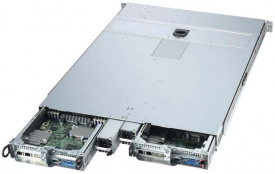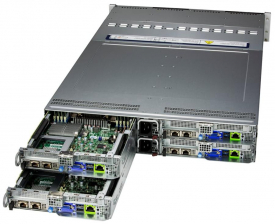Windows Server types
| F.A.Q. • OtherWindows Server is a family of operating systems created by Microsoft, specifically designed to support networking and server services in businesses and organizations. Within this family, there are different versions, such as Windows Server Essentials, Windows Server Standard and Windows Server Datacenter, each with its own unique features and applications. In this article, we will discuss the main differences between these three versions of Windows Server.
-
- Targeted mainly at small businesses and enterprises.
- Has built-in tools for backup management and remote access.
- Usually does not include advanced features such as operating system-level virtualization (Hyper-V), which makes it more affordable for small businesses.
- Windows Server Essentials comes with built-in 25 CAL (Client Access License) licenses per user and 50 CAL licenses per device. It is impossible to expand the number of CAL licenses with additional license packages.
-
- Suitable for larger companies and organizations.
- There are no restrictions on the number of users or devices.
- Offers advanced features such as operating system-level virtualization (Hyper-V) and the ability to use a highly available cluster.
- The Standard version offers greater flexibility and scalability compared to Essentials, but is typically more expensive.
- Windows Server Standard does not have a limit on the number of CPUs, but physical CPU cores (or CPUs if there are more in the server) are licensed.
- The standard license covers up to 16 cores, but you can expand the number of cores with additional license packages.
Windows Server Datacenter:
-
- The most powerful version of Windows Server.
- Ideal for large organizations and data centers.
- It offers all the advanced features available in Standard, but with added flexibility and scalability.
- Allows unlimited virtualization, which means you can run multiple virtual machines on a single physical server without buying additional licenses.
In summary, choosing the right version of Windows Server depends on the needs and size of your company or organization. Windows Server Essentials is ideal for small businesses, Windows Server Standard offers more flexibility for medium and larger companies, and Windows Server Datacenter is suitable for large organizations that need unlimited virtualization and scalability. It's also worth paying attention to the cost of licenses, as different versions have different pricing models. It's worth considering your needs and budget before choosing the right version of Windows Server
Realted Pages:
- Differences between Windows 11 Pro and Windows 11 Pro for Workstations: Which edition is for you?
- How to install Windows 11 on a Supermicro motherboard with a TPM 2.0 module installed (What BIOS settings?).
- Windows 11 - news, version comparison, differences from version 10
- Windows Server 2025 Now Available!







